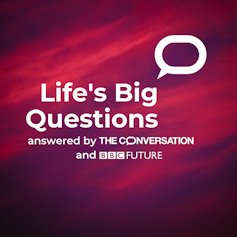I Chose My Family Over Girlfriend and Now Regret It
I am happily married, but I have never been able to stop missing my ex partner. The regrets I have affect me every day. My new life is wonderful, simply I just can't be happy. How tin I move forward? Anonymous, 38, London.
"Any fourth dimension gone by was better," wrote the Castilian poet Jorge Manrique in the 15th century, perfectly capturing what a powerful emotion nostalgia is. This simple line reveals that longing for the by is a universal feeling, experienced by people all over the earth throughout history. We call back the past fondly because, being unchangeable, it is also unthreatening – unlike the present and the hereafter. It tin exist a refuge likewise, especially when stripped by united states of its uglier and more inconvenient truths.
Research into nostalgia has plant this emotion to be quite useful: it reduces loneliness (by boosting our sense of social belonging), increases positive self-regard and generates skilful mood. It tin can also increase a sense of meaning in life (no small feat), past promoting feelings of social connexion.
Nostalgia is likely at the centre of your dilemma. By loves, subsequently all, tin all also easily be remembered without their nagging doubts and niggling details. Consequently, remember that those old relationships broke down for a reason. It is important to bear this in listen to avoid idealising a liaison that, being in the past, is uncorrupted past the mundane pressures and little disappointments of daily life.

This article is part of Life's Large Questions
The Conversation'due south new series, co-published with BBC Future, seeks to respond our readers' nagging questions almost life, love, decease and the universe. We work with professional researchers who accept dedicated their lives to uncovering new perspectives on the questions that shape our lives.
Unreliable memories
Nosotros are often nostalgic over matters of the center and specially tend to call up fondly of our outset romance. But while the first cut may be "the deepest", equally the Cat Stevens' vocal goes, it is only so because early adolescent romances are marinated in hormones and impact a very impressionable young brain. Consequently, like so many other "firsts" in life, a get-go beloved leaves an indelible mark.
But that doesn't mean that nosotros're doomed to remain in the past. As the American psychologist Nancy Kalish has argued:
Stiff emotional memories are not imprints. They do not forbid later bonds from occurring that are just as strong or stronger. They do not determine our behaviour. The pick is ours, equally humans, to follow the constitute person or to permit him or her go.
Memories are rarely an accurate guide to the past – it makes sense to be sceptical of them. Nosotros constantly pick and cull what to recall. If y'all want to view your past dear every bit perfect, you are more likely to call up the instances in which your ex was wonderful than the times they were in fact annoying, difficult and outright hateful.
Research too suggests that our memories get distorted over time, the more we recall and talk well-nigh them, the more we focus on certain details that we're currently interested in, while nosotros forget others. Memory is therefore partly influenced past our ain motivations. And as if that wasn't bad enough, we sometimes even invent completely false memories of things that never happened – no matter how proficient our retentivity is.
Difficult beloved
While the intensity of immature romance makes it a very bonny subject for drama, as in Shakespeare'southward Romeo and Juliet, your dilemma brings to listen a very dissimilar love story: Casablanca.
In this 1942 film, Rick, played by Humphrey Bogart, and Ilsa (Ingrid Bergman), reignite the romance they had in Paris before the second world war. Ultimately, however, Rick's surprisingly high moral standards force him to cede their love in order to aid Ilsa and her hubby, a resistance hero, flee Vichy-controlled Casablanca. Surrendering a dear involvement to a rival as part of the state of war effort doesn't audio very romantic, merely millions of viewers idea it was.
The component in the Casablanca story that is relevant to this question is the fact that Ilsa abased Rick in Paris when she learned that her husband had not been killed past the Nazis, every bit she had mistakenly thought. Ilsa and Rick had been forced autonomously past hard life circumstances, as oft happens in times of war.
That said, you may want to inquire yourself how happy yous actually are. If a relationship struggles from frequent fights, character incompatibility, or increasing boredom, i has to suspect that yet another attempt to save it would probably have the aforementioned result. The actors Elizabeth Taylor and Richard Burton might be a expert example of this 2nd category, fifty-fifty though it seems articulate that they did beloved each other very passionately. Taylor even said that "later Richard, the men in my life were just there to hold the coat, to open up the door". Their passion sustained the interest of the public, simply information technology wasn't plenty to sustain their hearts.
Sometimes, breaking upwards is necessary, simply we simply can't bring ourselves to do it because we are scared of feeling regret. Ending a human relationship forces us to admit a failure, experience regret and eventually motility on rather than remaining in an unhappy condition quo forever.
Reunited at concluding?
Is information technology, nevertheless, always a good thought to end a relationship because of an ex? Kalish started the Lost Dearest Projection back in 1993 from her base in California State University. The aim was to deport out a survey of men and women who had tried to reunite with their old flames.

In the first phase of the project, she found that ii-thirds of the ane,001 young participants had reunited with their loftier school sweethearts and their success rate in rekindling their dear and consolidating it into a stable relationship was 78% – a strikingly loftier figure.
Many of them were forced to separate when they were immature every bit a event of parental disapproval, or other practical issues. Considering of this, Kalish warned parents against dismissing their teenage children's passions as "only puppy love". But the 2d stage of the study revealed that married participants who tried to practise the same thing ran into all sorts of perhaps predictable difficulties such as being caught cheating. Simply 5% of these lost lovers ended up marrying each other, oftentimes remaining in their original marriages.
The prospect of relighting an old flame can be tempting, but it's not always the best idea. In our internet era, getting in touch with old lovers is much easier than information technology used to be. In that location are, in fact, websites specifically defended to this purpose. Only when either political party is in a stable relationship with someone else, approaching an ex with the idea of exploring a possible rekindling of passions past is a risky do.
Retrieve that a new partner tin can never exist superior in every single respect to the old 1, who you may have possibly idealised. The glamorous by beats the mundane present and your ageing new partner, asleep on the sofa, perhaps dribbling a trivial fleck, tin can't compete with the young, tanned, and smiling memory of an former flame, set in a happy Mediterranean holiday. And don't forget that both you and your ex accept probably changed since you were together, meaning you may not at all be as compatible as you used to be. In whatsoever example, happiness doesn't reside in the past, non least because humans are not actually designed to exist happy, something I explore in my latest book "You are not meant to be happy. So stop trying". As a proxy of happiness, nostalgia's futile efforts to revive the past will be worse than a feeling of hope for the future.
Moving on
Y'all want to motion on, which is the correct attitude afterward a breakdown. At that place is evidence that any type of continuing interest with an ex-partner following the dissolution of a relationship, maybe through social media, for instance, is an obstacle in the healing process. So aiming for a make clean cut, if this hasn't happened already, volition exist the first pace.
Having difficulties in letting go of the retention of a lover may be due to an insecure attachment to adults during our childhood, which in some cases may even atomic number 82 to net surveillance of the lost lover. In order to avoid getting stuck in this type of purgatory, ane should practise a certain amount of self-discipline and willpower, in one case a conclusion to motility on has been reached. Therapy can help when willpower is not sufficient.
You lot tin also detect inspiration in Bogart'southward role in Casablanca and how he permit his lover go when he felt at that place was no satisfactory culling way forward, and how he relabelled their love affair as something they could both remember and treasure: "We'll always have Paris."
To get all of life's big answers, join the hundreds of thousands of people who value bear witness-based news past subscribing to our newsletter. You lot can send us your big questions by email at bigquestions@theconversation.com and we'll try to become a researcher or expert on the case.
More Life's Large Questions:
-
Is racism and bigotry in our DNA?
-
Philosopher in Italian coronavirus lockdown on how to think possitively about isolation
-
Happiness: is contentment more of import than purpose and goals?
-
Costless idea: can you lot ever be a truly independent thinker?
-
Could we alive in a world without rules?
-
Feelings: What's the betoken of rational idea if emotions ever take over?
-
Death: can our final moment be euphoric?
-
Nature: have humans now evolved across the natural earth, and do we withal need it?
-
Honey: is it simply a fleeting high fuelled by encephalon chemicals?
Source: https://theconversation.com/why-do-regrets-over-lost-love-often-stop-us-being-happy-and-how-can-we-move-forward-137646